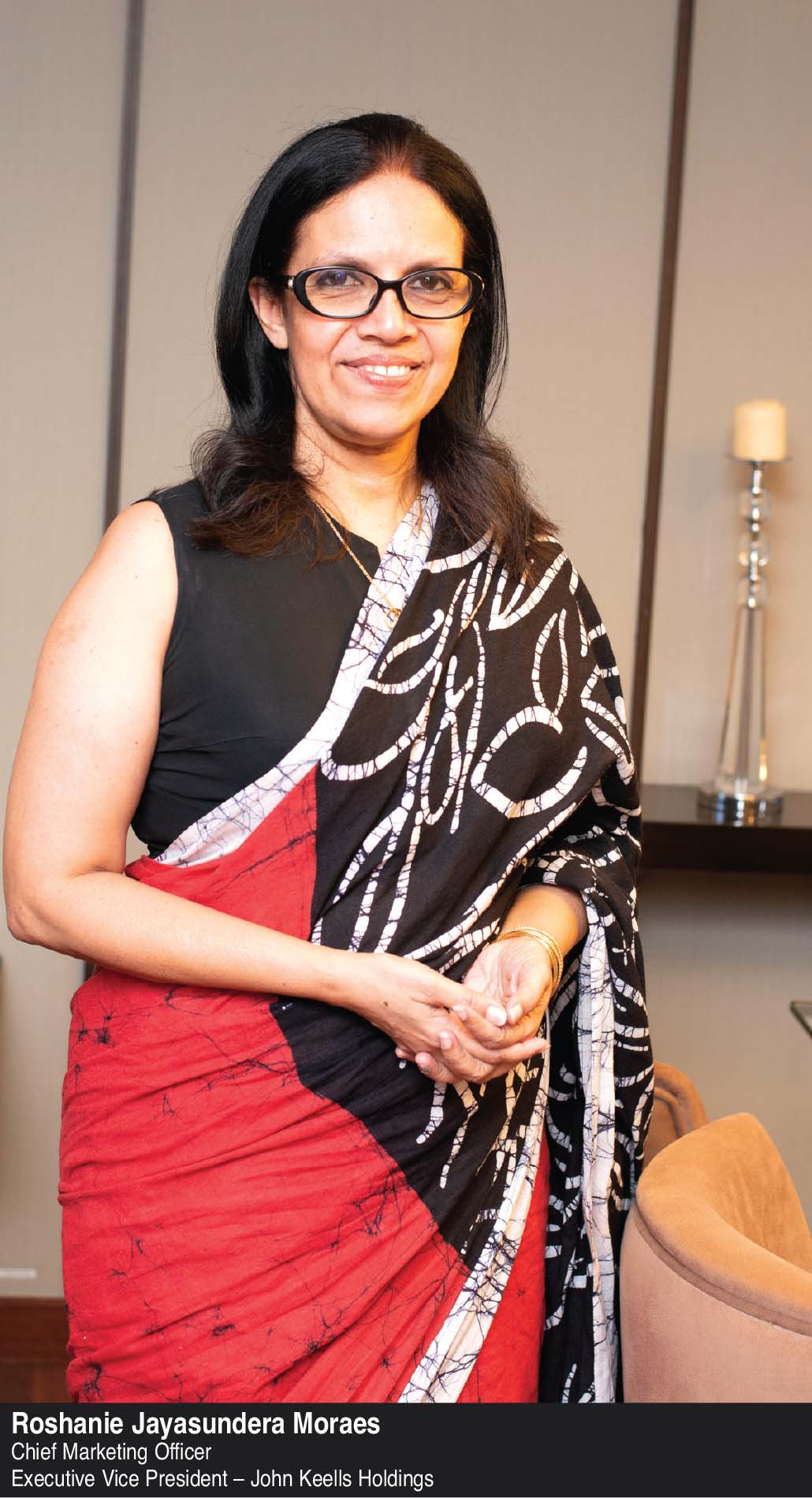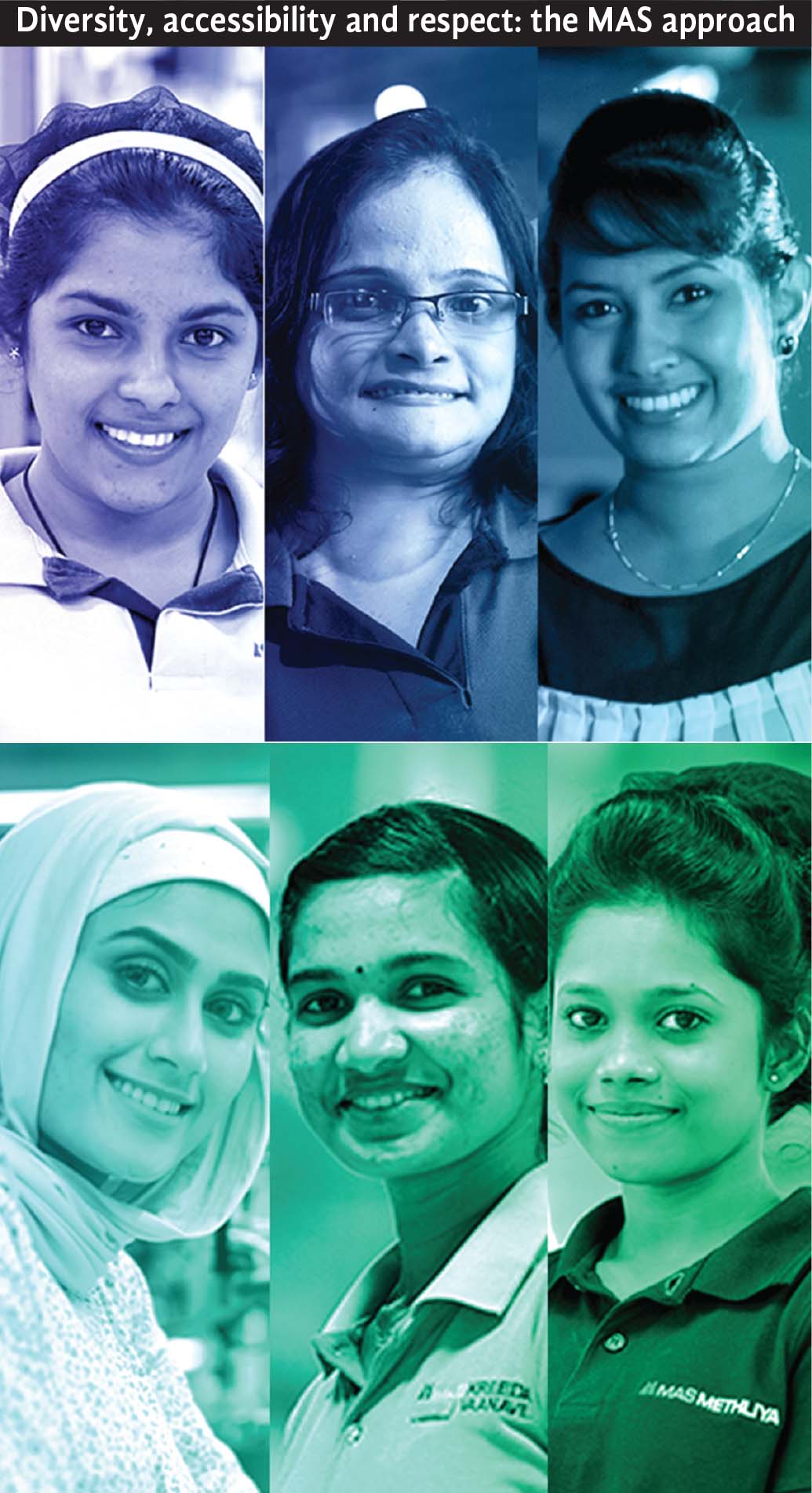AITKEN SPENCE
Q: How does Aitken Spence view the business climate?
A: The economy is gradually recovering and according to the IMF, GDP growth is projected at 3.7 percent for 2020. Moreover, the tourism industry has witnessed a rebound; however, this is provided that the novel coronavirus will be contained with limited negative effects on tourist arrivals and other economic activities.
For the economy to experience a strong growth trajectory, we need to foster a business climate that promotes trade openness and investment, and strengthen infrastructure sustainably whilst taking proactive steps to address the challenges arising from climate change.
There is a dire need for greater female participation in decision making, policy-making positions and parliament.
Q: In this context, how important is mentorship for young business leaders?
A: Mentoring is extremely important to support and develop talent particularly for career progression. It helps men as well as women in overcoming gender based barriers to progression, and confronting gender inequality.
A mentor is someone who will work with you closely – so there is a need for mentors who can support both professional and personal growth. They should challenge you to improve in all aspects of life, ask tough questions and provide genuine feedback.
Q: How do you view women’s representation in the public and private sectors – essentially, women on boards?
A: Gender parity in the workforce is the widest in emerging economies such as Sri Lanka because of social and cultural limitations. Although it is important to have women in leadership roles in both the public and private sectors, despite some progress, gender distribution in leading public sector roles remains considerably poor.
Several factors contribute to the slow growth of women’s inclusion in terms of top executive roles across the globe: traditional beliefs, cultural and social discrimination, and low promotion rates.
In most cases, policies seem to dictate research rather than being guided by research. It is critical to first be informed of what causes gender imbalance in corporate boards and thereafter, have policies to bridge that gap.
Q: What steps has your organisation taken to improve women’s representation?
A: Aitken Spence was amongst the first signatories to the UN Global Compact in Sri Lanka (in 2002), the world’s largest corporate responsibility network, and among the first companies in the world to sign the UN Women’s Empowerment Principles. As an organisation, we have aligned our strategies with the UN Sustainable Development Goals (SDGs).
Across the group, policies are implemented to create a supportive environment for work-life balance. Presently, we’re looking to drive our gender and inclusivity agenda, which is in alignment with prevailing national initiatives. At Aitken Spence, female representation on the main board is 11 percent and 40 percent in the overall workforce – numbers we hope to improve over the next few years.
Our highest representation of females is in the strategic investments (60%) and tourism (15%) segments. This is reflective of female representation in specific industries where women may be missing out on economic opportunities because of stigmas in society. We want to change that.
Furthermore, over the years, Aitken Spence Hotels has worked to bridge the skills gap among youth. A recent step involved investing Rs. 70 million to open a well equipped ladies’ accommodation facility at our most iconic property in Sri Lanka – Heritance Kandalama. The parents and families of female staff were invited for the opening to witness for themselves where their daughters, sisters or wives would reside.
Q: And finally, what can organisations do to address the loss of women employees at mid-career?
A: In my experience, women tend to leave their jobs midway because of family commitments, social stigma and the lack of strong support systems.
It goes without saying that organisations should promote an inclusive and performance based culture that values work-life balance. These are collective reasons that contribute to women progressing beyond their mid-careers.
For example, many women leave the workforce after childbirth due to a lack of secure childcare as well as the high cost of obtaining safe childcare options. At our plantations, women are availed of child development centres, and medical assistance during and after childbirth. We also have support systems for single parents.
Women can continue to work when the support systems are enabled. There is a need for industry level policies to support women returning to work.
The apparel industry has successfully implemented policies to empower women. There should be similar programmes to support women in management. Moreover, strong regulatory frameworks and public support networks would help women and girls.
Additional steps must be taken to make schools a safe environment for children including after-school programmes that offer mothers with full-time careers the peace of mind to concentrate on careers or jobs whilst children participate in school activities during regular working hours.\







